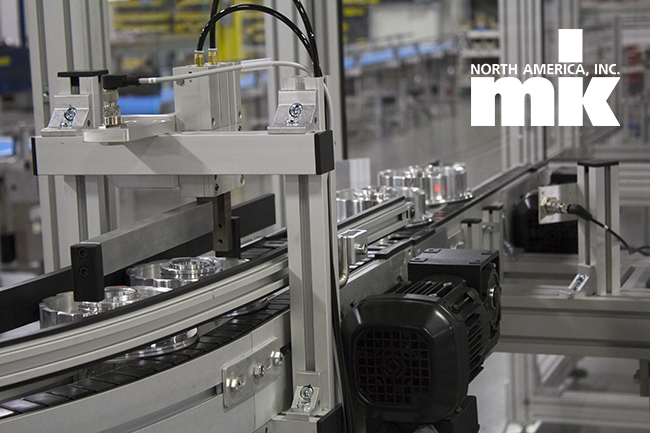AI Growth Keeps Production and Supply Chain Moving
Posted on
Artificial Intelligence, the use of computer systems to perform functions once only possible by humans, is becoming a powerful tool for everyday life. From real-time traffic maps to improve commute times, to uploading a check using your bank’s mobile app – the applications for AI are endless.
What makes this technology unique is the ability for systems to learn over time and correct actions to make better, more efficient processes.
In manufacturing, AI is taking automation to all new levels. That means faster product development, increased innovation and more profitability. These systems can assemble, move, transport and pack in ways never before possible.
By working together, man and machine can reduce labor shortages and allow for new business innovation.
According to a study by Accenture Research on the impact of AI in developed economies, it has the potential to boost rates of profitability by an average of 38 percentage points and could lead to an economic boost of $14 trillion in additional gross value added (GVA) by 2035.
AI-powered systems’ ability to learn and adapt means manufacturing and production lines will eventually eliminate unnecessary or faulty machines - creating room for new growth potential.
The key is collaboration between these advanced systems and human laborers who can lean on them to complete tasks as they focus on new ideas and business growth.
Intelligent Conveyor Systems
Consider a manufacturing facility that requires humans to pick items from an aluminum conveyor that are a specific size or shape. Over time, AI systems can learn how to do this and free laborers up to perform other job functions while improving manufacturing productivity and quality.

Another example is the use of pallet conveyors to transport large items across a factory. The operations of these conveyors are critical so continual monitoring of their functionality becomes a must. Ensuring they are moving smoothly and are calibrated to handle weight capacity for each job, was traditionally done through manual processes. Today, AI has the ability to transform the need for manual tasks by making conveyor systems more intelligent so they can offer optimal performance at all times - reducing errors, break downs or other factors that could slow down an operations.
The Future of AI in Manufacturing
Taking this a step further is the ability for intelligent systems to collect data from conveyor systems and production lines and pass it to other areas of the business like sales and engineers, to help them better plan and optimize operations.
AI in the industrial setting is already making giant strides. For businesses, a future where humans and machines work together to optimize productivity and build new possibilities is quickly becoming the reality.
